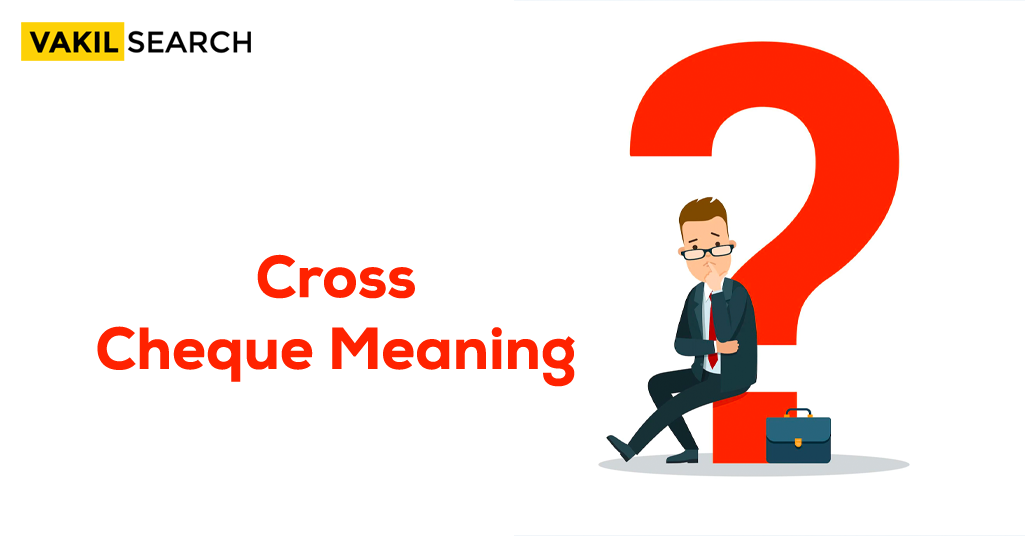Cross Cheques are the most commonly used instrument of payment in India. The Cross Cheque system is designed to safeguard citizens' deposits. As a result, it protects depositors from fraud and embezzlement while at the same time allowing banks to safely hold these funds.
The Cross Cheque System in India is an important banking system that allows customers to easily transfer funds between different banks. The system works by checking the account balances of the sender and the receiver, and then transferring the necessary funds. There are three main types of cross cheques in India: inter-bank cheques, overdrafts, and transferable instruments.
Inter-bank cheques are used to transfer money between different banks. They are printed on a special kind of paper called a demand draft, and they must be cashed within a certain time period or they will become invalid. Overdrafts allow customers to borrow money from one bank and then use that money to purchase items or withdraw cash from another bank. Transferable instruments are electronic vouchers that can be used to pay for goods or services.
Types of Cross Cheque
Cross cheque system operates in India by using the bank drafts drawn on different banks. The draft is a written order from one bank to another for the payment of money. The drawer of the draft is the bank that makes the payment, and the drawee is the bank to which the draft is drawn.
The cheque system in India was introduced during British rule in 1838. The original form of cheques were called bankers’ drafts because they were used by bankers to settle accounts between themselves. The system operated through a network of clearing houses and was very efficient because it allowed merchants to settle their bills quickly and without having to carry any cash around. Today, the cheque system is still used in India for large transactions, such as those involving foreign currency transfers.
There are two types of cross cheques in India:
- A demand draft is a type of cheque that is payable on demand when drawn on a bank. A demand draft is usually used for immediate payments and has a higher cost than a regular cheque because it requires additional processing time.
- A forward contract or letter of credit (LC) is a type of cheque that allows businesses to secure financing by pledging assets. It is a form of negotiable instrument, so it can be paid many times but does not need to be honoured as soon as it is presented. A bank will not honour a forward contract unless there are sufficient funds available in the business’s account. If a cheque is dishonoured, which means that it is returned for lack of funds, the bank will charge the customer interest on the amount of money that was transferred. The customer may also have to pay a fee for processing the payment. Get to File Cheque Bounce Case Online With Legal Help.
Things to Consider Before Using a Cross Cheque
If you are thinking of using a cross-cheque system in India, there are a few things you should consider first. Here are key points to keep in mind:
- Understand the tax implications of using a cross cheque system. Cross cheques are considered cash transactions, which means that they will be taxed as such. This means that you’ll have to pay income tax on the amount that is transferred, as well as capital gains tax if the crossed cheques result in a gain for you. Make sure that you fully understand the implications of using a cross cheque system before signing up for one.
- Make sure your bank is compatible with the cross cheque Draft system. Your bank may not be compatible with the cross cheque system if it doesn’t offer it specifically. Make sure to ask your bank about its compatibility before signing up for a cross cheque system.
- Be prepared to deal with any issues that may arise when using a cross cheque system. If your bank doesn’t accept your crossed cheques or they bounce, be prepared to deal with the fallout. Be sure to have contingency plans in place in case things go wrong.
How Does the Cross Cheque Work in India?
To use the cross cheque system in India, customers must first open an account with a bank. Then, they can deposit funds into their account and create cross cheques. Cross cheques can be used to make payments to other customers or to withdraw money from the bank.
Cross cheques are not as secure as traditional bank deposits, so it is important to guard them carefully. If a cross cheque is lost or stolen, it can be difficult to replace. Customers should also be aware of the risks associated with making payments using cross cheques, including the risk of fraud.
Conclusion
Essentially, cross cheques are paper checks that allow you to transfer money from one account to another without having to pay interest on those funds. This system is incredibly helpful for businesses because it allows them to easily move money between different accounts without having to worry about running out of cash or bouncing checks. If you’re interested in learning more about the cross cheque system in India, be sure to contact Vakilsearch today.



